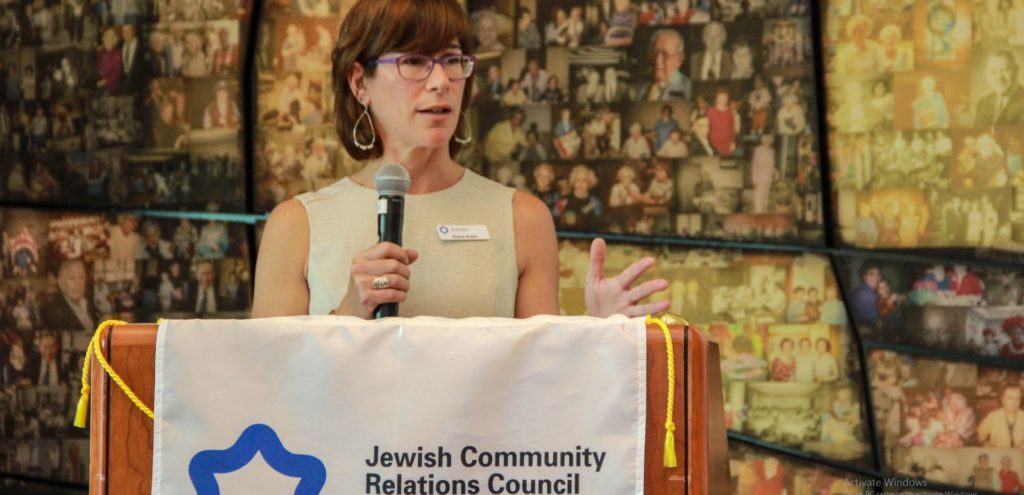For the last year, American Jews have been anticipating the 50th anniversary of the Six Day War: How would we mark the legacy of those fateful days with reverence, respect and thoughtfulness? As we are increasingly called to defend Israel from detractors within and outside the community, how do we grapple with the legacy of this deeply important and contentious anniversary?
First, we need to know the history and its meaning. And then we need to recommit ourselves to being drivers of peace.
In 1967, Jews in Israel and around the world celebrated an unlikely and seemingly miraculous victory of Israel’s small army over collaborating enemies. In six dramatic days, the young liberal democracy beat back the armies that had gathered at Israel’s border, while masses of people gathered in Arab capitals, calling “death to the Jews.”
It was a moment of promise, of weak overcoming strong, when many felt that the Jewish exile had ended. After thousands of years away, we were finally home.
The victory fulfilled a Zionist dream described by former Knesset member Einat Wilf in a December 2016 article in The Tower: “Zionism tells a simple story: Victimhood is not destiny. A history of marginalization, humiliation, discrimination, persecution, massacres and even genocide can be transcended. A people, no matter how downtrodden, can find within themselves the power to change their future.”
Immediately after the war, groups of Zionist dreamers began setting up communities in the West Bank. Some were driven by nationalist and religious zeal, and some were pragmatically driven by cheaper housing. Now, 50 years later, 400,000 Jews live in those lands amid a population of 2.5 million Palestinian Arabs.
Fifty years later, the legacy is complex, and we cannot deny that complexity. We cannot ignore that, as Yossi Klein HaLevi, author of “Like Dreamers: The Story of the Israeli Paratroopers Who United Jerusalem and Divided a Nation,” recently wrote in Sh’ma Now, “Continuing the occupation endangers our most cherished assumptions about ourselves as a people — rachmanim bnai rachmanim, merciful children of merciful parents — and threatens the viability of a Jewish and democratic Israel.”
Israel faces a real dilemma. Fifty years since that war and 69 years since Israel’s founding, most Palestinian leaders still deny the Jewish people’s fundamental legitimacy in the land. And the Palestinian cause has been embraced worldwide by some who seek to harm Jews and Israelis. There are still significant Palestinian calls to wipe Israel off the map, and there are leaders on both sides who refuse to cede even one meter of land for the sake of peace.
But we know that, at least for Israel’s sake, there is no sustainable solution other than a negotiated path to peace.
Here in Milwaukee, we cannot set policy for Israelis and Palestinians, but we can control how we talk about the conflict and how we support the drive toward peace. In our community, talking about Israel is a high stakes activity, with many rabbis and educators choosing avoidance rather than confrontation.
So how do we mark this anniversary? By looking clear-eyed at the practical and moral dilemmas that the war produced, including Israel’s responsibility toward the 2.5 million Palestinian Arabs living in the territories Israel seized.
By supporting the peacemakers, for only those committed to security and safety for both peoples have a vision for the next 50 years.
By rejecting simplistic narratives in which we arm ourselves with just enough information to corroborate or strengthen our arguments, and deny the inconvenient truths posed by the other side.
By being brave enough and strong enough to reject “either-or” thinking and choose instead to look boldly at the multiple, complex narratives and perspectives that define the conflict.
And by leaning in to necessary and difficult conversations that embody the Jewish value that all people – including both Israelis and Palestinians, people on the political right and those on the left – are created in the image of God.
Elana Kahn is director of the Jewish Community Relations Council of the Milwaukee Jewish Federation.



